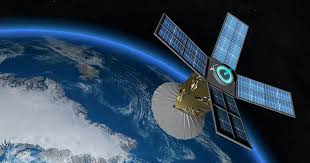Nigeria’s $50 Billion Space : Can Satellites Unlock the Country’s Economic Future
Nigeria’s $50 Billion Space : Can Satellites Unlock the Country’s Economic Future
By Achimi Muktar
In a bold move to revolutionize its revenue generation strategy, the federal government of Nigeria has launched a groundbreaking initiative aimed at leveraging space technology to generate $50 billion annually.
Dubbed the Presidential Initiative on Revenue Optimization and Digitalization via Space Technology, the program is a collaboration between the Revenue Mobilization Allocation and Fiscal Commission (RMAFC) and the National Space Research and Development Agency (NARSDA). The goal? To harness satellite technology, artificial intelligence, and digital innovations to track revenue streams, curb leakages, and unlock new economic opportunities.
Speaking at the initiative’s launch in Abuja, RMAFC Chairman, Dr. Mohammed Bello Shehu, emphasized the urgent need for modern revenue generation strategies.
“Traditional sources of revenue are outdated and insufficient. We must think innovatively to unlock new economic opportunities for our great nation,” Shehu declared.
Dr. Mathew Olumide Adepoju, Director General of NARSDA, revealed that advanced technologies—including AI, robotics, and satellite surveillance—are already being deployed to drive the initiative.
“Our preliminary analysis shows that this initiative could help Nigeria generate up to $50 billion annually,” Adepoju stated.
He further explained that space-based monitoring of natural resources, tax revenue tracking, and enhanced security surveillance could significantly increase government revenue and minimize fraud.
Beyond economic benefits, the initiative is also expected to improve national security. Adepoju warned that Nigeria risks being labeled a “blind spot” in the Gulf of Guinea due to its lack of advanced satellite surveillance capabilities.
“Our analytics show that many internal conflicts are linked to solid minerals and other natural resources. By incorporating space technology, we can track these resources more effectively, curb illegal mining and smuggling, and enhance security,” he explained.
While Nigeria joins the global race to harness space technology for economic growth, experts argue that strong political will, adequate funding, and inter-agency cooperation will be crucial to the initiative’s success.
Adepoju urged all Ministries, Departments, and Agencies (MDAs) to fully cooperate in implementing this historic project.
As Nigeria takes a giant leap into the future, the question remains: Can space technology truly transform the nation’s economy, or is this another ambitious promise doomed to fade into oblivion?


















